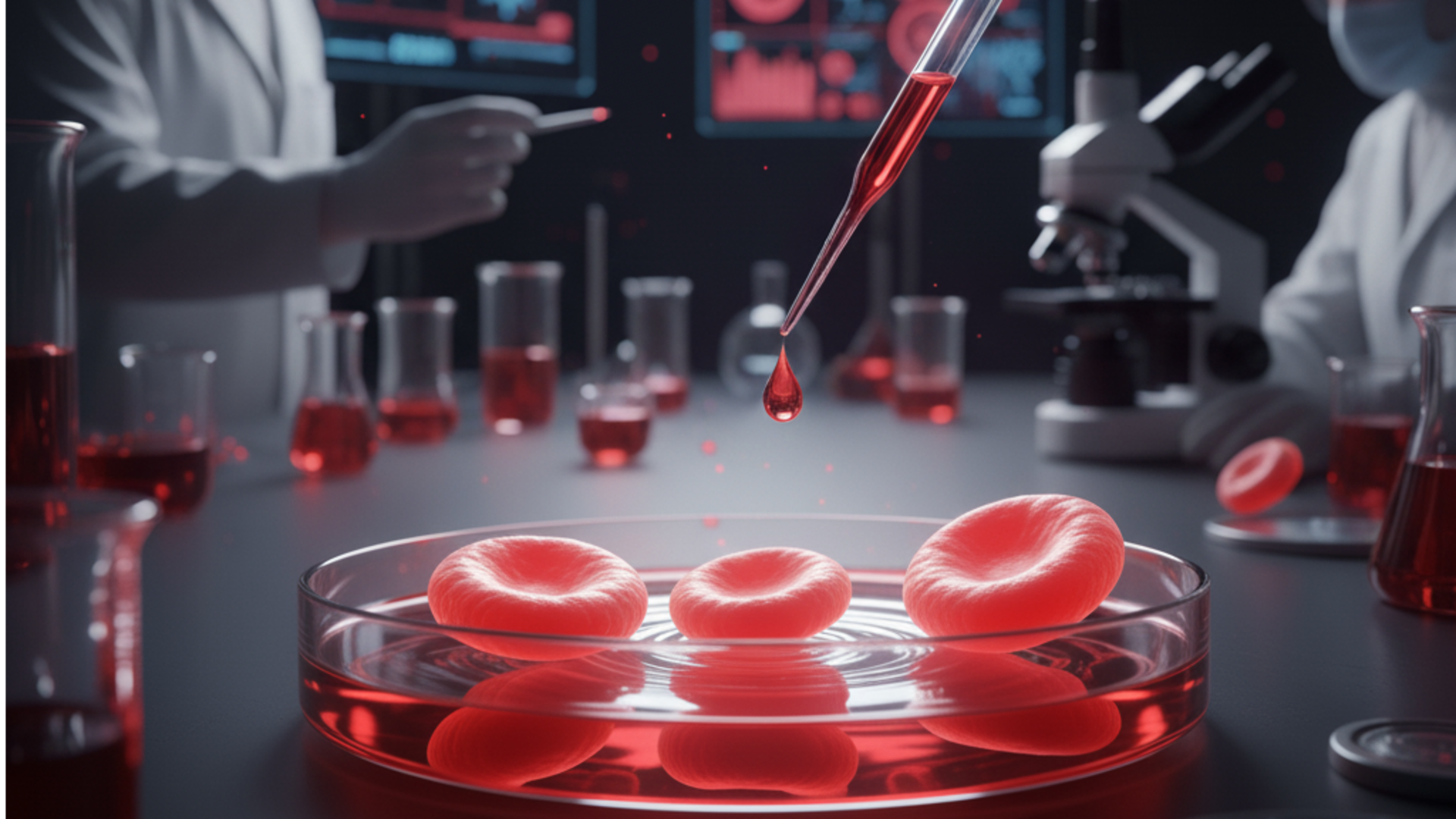
Scientists create human blood cells in lab for first time
What's the story
Scientists at the University of Cambridge have made a groundbreaking discovery by creating human blood cells in the lab. The process mimics natural embryonic development and uses human stem cells. The researchers believe this could lead to modeling blood disorders like leukemia and generating long-lasting blood stem cells for transplants. "It was an exciting moment when the blood red color appeared in the dish," said Dr. Jitesh Neupane from Cambridge's Gurdon Institute.
Potential impact
Lab-grown blood cells could revolutionize regenerative therapies
The new lab-grown blood cells could revolutionize regenerative therapies, which use a patient's own cells to repair damaged tissues. "Although it is still in the early stages, the ability to produce human blood cells in the lab marks a significant step toward future regenerative therapies," said Prof. Azim Surani, senior author of the study. Hematopoietic stem cells are immature cells capable of developing into any type of blood cell including red and white blood cells.
Innovative development
Researchers created embryo-like structures, dubbed 'hematoids'
The researchers created embryo-like structures, dubbed "hematoids," which start producing blood after about two weeks of lab development. This process closely mimics human embryonic development. However, these hematoids are not real human embryos as they lack several embryonic tissues and the supporting yolk sac and placenta needed for further development.
Methodology
Method different from existing techniques
The new technique for generating human blood stem cells in the lab is different from existing methods. The current approach relies on a cocktail of extra proteins to support the stem cells' growth and development. However, this new method mimics the natural developmental process using a self-organizing human embryo-like model, which is crucial for advancing understanding of human development.
Ethical approval
Ethical considerations
All research modeling human embryo development must be approved by ethics committees before proceeding. This study received the necessary approvals and was peer-reviewed. The embryo models were allowed to grow and develop until they were comparable to an embryo 14 days after fertilization, which is the legal cut-off for normal embryo research in many countries. The study has been published in the journal Cell Reports.